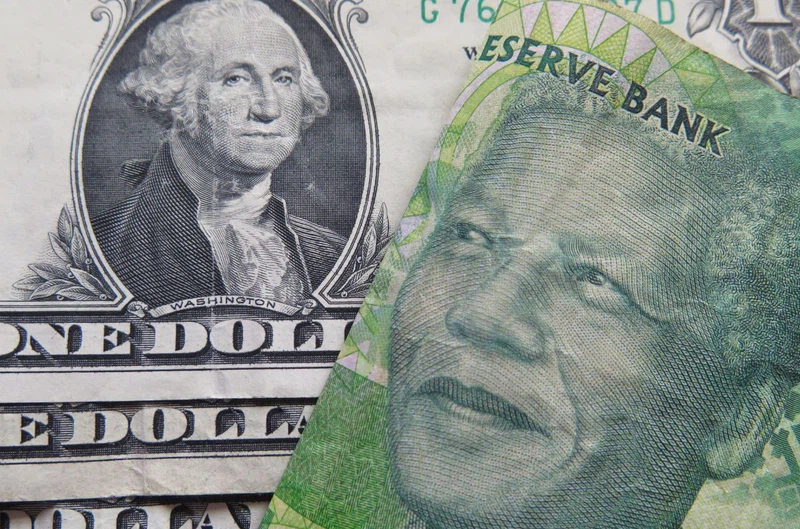
Dollar eyed its best week against yen in three months
The dollar eyed its best week against the yen in three months after Federal Reserve Chair Jerome Powell poured cold water on market expectations.

Reuters: The dollar eyed its best week against the yen in three months on Friday, after Federal Reserve Chair Jerome Powell and a chorus of Fed officials poured cold water on market expectations of a peak in U.S. rates.
ALSO READ: Debt Management: Consolidation Loans for Non-Natives in Sweden
U.S. DOLLAR EYED ITS BEST WEEK
In cryptocurrencies, bitcoin and ether held near multi-month highs, with renewed speculation over the imminent approval of an exchange-traded bitcoin fund breathing new life into the digital assets. A slew of Fed policymakers including Powell on Thursday said they are still not sure that interest rates are high enough to finish the battle with inflation, comments taken as hawkish by markets and which sent the greenback rising. The dollar stood near a one-year high at 151.38 yen on Friday and touched one-week highs against the Australian and New Zealand dollars. “Powell’s speech was quite hawkish, and that just really hit sentiment,” said Tina Teng, market analyst at CMC Markets.
The remarks from Fed officials came a week after the U.S. central bank left interest rates steady and cemented expectations that rates could have peaked, causing the dollar and Treasury yields to tumble in the aftermath. The greenback, however, regained its footing this week and was eyeing a weekly gain of roughly 1.3% against the yen, its best performance since August. “Dollar/yen did trend higher this week and it’s now back above 151. It does raise the risk of the BOJ stepping into the forex market to strengthen the yen, but I think markets are expecting no intervention unless dollar/yen moves to about 152,” said Carol Kong, a currency strategist at Commonwealth Bank of Australia.
ALSO READ: Who is the richest person in the world today? Top 10 list – 10 November 2023
The Aussie and the kiwi were likewise headed for a 2.4% and 1.8% weekly decline against the dollar respectively, also their steepest drop in months. “Even though we don’t expect Powell to deliver on the tightening bias, that tightening bias does support the dollar,” said Kong. The Australian dollar last stood at $0.6359 after slipping to a one-week low of $0.6352 earlier in the session, while the New Zealand dollar was last at $0.5893, having similarly hit a one-week trough of $0.5886 earlier.
Falling oil prices and a faltering economic recovery in China have also kept a lid on the Antipodean currencies. Australia’s central bank, in its quarterly Statement on Monetary Policy released on Friday, warned there were risks of further upside surprises to inflation following its latest hike in interest rates, while also raising forecasts for economic growth and employment. Elsewhere, the euro steadied at $1.0668, while sterling slipped 0.02% to $1.2218. They were both on track to lose 0.56% and 1.3% for the week, respectively.
Bitcoin, the world’s largest cryptocurrency, meanwhile held near an 18-month high and last bought $36,519, having peaked at $37,978 in the previous session, its highest level since May 2022. The second-largest cryptocurrency Ether last stood at $2,102.90, after similarly jumping to its highest since April of $2,131.50 in the previous session. Prices of the digital assets have surged on swirling speculation of an imminent approval of BlackRock’s spot bitcoin ETF, with the asset management giant also having registered to create an ethereum trust. “The potential approval of spot ETFs by the U.S. Securities and Exchange Commission could significantly impact the cryptocurrency sector,” said Carl Szantyr, managing partner of digital asset hedge fund Blockstone Capital. “Such an endorsement would make it more accessible for institutional investors to enter the crypto space, likely boosting demand and subsequently, prices.”
ALSO READ: Local Celebrities becoming victim to ‘bitcoin scams’
BRITISH POUND
Reuters: The pound edged up against the euro on Thursday after Bank of England policymakers, including Chief Economist Huw Pill, reiterated policy will need to remain restrictive for some time. “We need a persistent level of restriction over the next extended period,” Pill said. Earlier this week, Pill had said market pricing pointing towards a first interest rate cut in August 2024 “doesn’t seem totally unreasonable”. But on Wednesday, BoE Governor Andrew Bailey reiterated that monetary policy would need to remain restrictive for an extended period. “It’s really too early to be talking about cutting rates,” Bailey said.
Against the euro, sterling was up 0.05% to 87.12 pence, but still some way from the three-week high of 86.50 hit on Monday. The pound was last down 0.2% against a strengthening dollar at $1.2259, and off a near two-month high of $1.2428 touched on Monday. “Yesterday witnessed BoE Governor Bailey pour a degree of policy cold water on the previous assessment from Chief Economist Pill regarding market pricing for a BoE cut as early as August,” said Jeremy Stretch, head of G10 FX strategy at CIBC.
ALSO READ: Simplified Debt Management: Consolidation Loans for Non-Natives in Sweden
Sterling will likely weaken towards the levels seen in October against the euro and move back towards $1.2220 against the dollar as UK GDP data on Friday could show consumers remain reticent to spend amid a moderating labour market, Stretch added. “We remain mindful of the risks of consumer fragility,” he said. Markets are currently pricing in about 10 basis points of BoE policy easing as early as May, and more rate cuts over the summer, according to LSEG data.
Last week, the BoE held its benchmark rate at 5.25% and said it was not thinking about cutting it as it continued to bear down on inflation which stood at 6.7% in September, lower than a peak of 11.1% in October 2022 but still more than three times its 2% target. A survey showed on Thursday that Britain saw some of the most widespread falls in house prices since 2009 last month, but the declines were at a slightly slower pace than in the previous two months and surveyors are less downbeat about the year ahead.
SOUTH AFRICAN RAND
Reuters: The South African rand edged higher in early trade on Thursday, ahead of a speech by the Federal Reserve Chair that could provide insight on possible direction for U.S. interest rates. At 0638 GMT, the rand traded at 18.4500 against the dollar, about 0.14% stronger than its previous close. The dollar was last up about 0.03% against a basket of global currencies. Fed Chair Jerome Powell gave his speech at 1900 GMT, investors were eagerly anticipating hints about the future interest rate path for the world’s largest economy.
He did not comment on monetary policy during an event on Wednesday, while other Fed speakers indicated earlier this week that the central bank might not be done with rate hikes. “The recent conflicting signals from the Fed over its next interest rate moves have markets on edge and currencies fairly range-bound,” said Andre Cilliers, currency strategist at TreasuryONE. Like other risk-sensitive currencies, the rand often takes direction from global drivers like U.S. monetary policy in addition to local drivers.
Locally, Statistics South Africa published the country’s September mining data at 0930 GMT and manufacturing figures at 1100 GMT. South Africa’s benchmark 2030 government bond was stronger in early deals, with the yield down 2 basis points to 10.295%.
ALSO READ: SABC loses more than R450 million, say reports
GLOBAL MARKETS
Reuters: Asian stocks fell to their lowest in a week on Friday, while the dollar was firm as elevated Treasury yields weighed on sentiment after hawkish comments from U.S. Fed Chair Jerome Powell extinguished expectations of a peak in interest rates. MSCI’s broadest index of Asia-Pacific shares outside Japan fell 1% to a one-week low of 486.39, while Japan’s Nikkei was 0.50% lower. U.S. Federal Reserve officials including Powell said on Thursday they are still not sure interest rates are high enough to finish the battle with inflation. The Fed is “committed to monetary policy that is sufficiently restrictive to bring inflation down to 2% over time,” Powell said at an International Monetary Fund event. “We are not confident that we have achieved such a stance.”
Powell’s comments along with a weak auction of $24 billion in 30-year Treasuries pushed yields higher, casting a shadow on equities and providing support to the dollar. “There is no point in corralling the market into expecting cuts until shortly before they look necessary,” said Rob Carnell, Asia-Pacific head of research at ING. Investors have been looking for signs of U.S. interest rates peaking after the Fed held rates steady last week, a move that bolstered speculation that the rate hiking cycle was over, leading to a short-lived rally in risky assets.
Carnell said the Fed needs to keep rates and bond yields reasonably high to achieve the tighter financial conditions that will bring about lower inflation and enable the Fed to ultimately cut rates. “That rhetoric has to continue, ‘we’re not definitely finished, there’s still a chance of more’ you do that right up until the day before you cut,” he said. Overnight, the three major U.S. stock indices closed lower, snapping the longest winning streaks for the Nasdaq and S&P 500 in two years as market optimism over looser monetary policy faded.
ALSO READ: ‘So proud’: Rachel Kolisi celebrates helping women and children
China stock eased 0.6%, while Hong Kong’s Hang Seng Index was 1.6% lower as worries over the world’s second-biggest economy resurfaced after data on Thursday showed consumer prices dipped back into contraction. Tapas Strickland, head of market economics at NAB, said the data keeps the pressure on Beijing to continue with its incremental easing in monetary and fiscal policy. The yield on 10-year Treasury notes eased 1 basis point to 4.620% in Asian hours, having risen 10.7 bps overnight. The yield on the 30-year Treasury bond fell 2.1 basis points to 4.746% after rising 12.1 bps overnight.
In the currency market, the dollar index held on to its overnight gains and was last at 105.87. The dollar stood near a one-year high at 151.38 yen and touched one-week highs against the Australian and New Zealand dollars. U.S. crude eased 0.03% to $75.72 per barrel and Brent was at $80.08, up 0.09% on the day. The oil market has been reeling this week on demand concerns, with a fading war-risk premium triggering a sell-off. Spot gold was little changed at $1,959.74 per ounce and on track for their worst week in more than a month as elevated yield and stronger dollar weighed.
Published by the Mercury Team on 10 November 2023
For more news on global and local market performance, follow our business and finance page.
